Coronavirus is a tragedy – but it could be the wake-up call we need: the economy has been forced to slow down
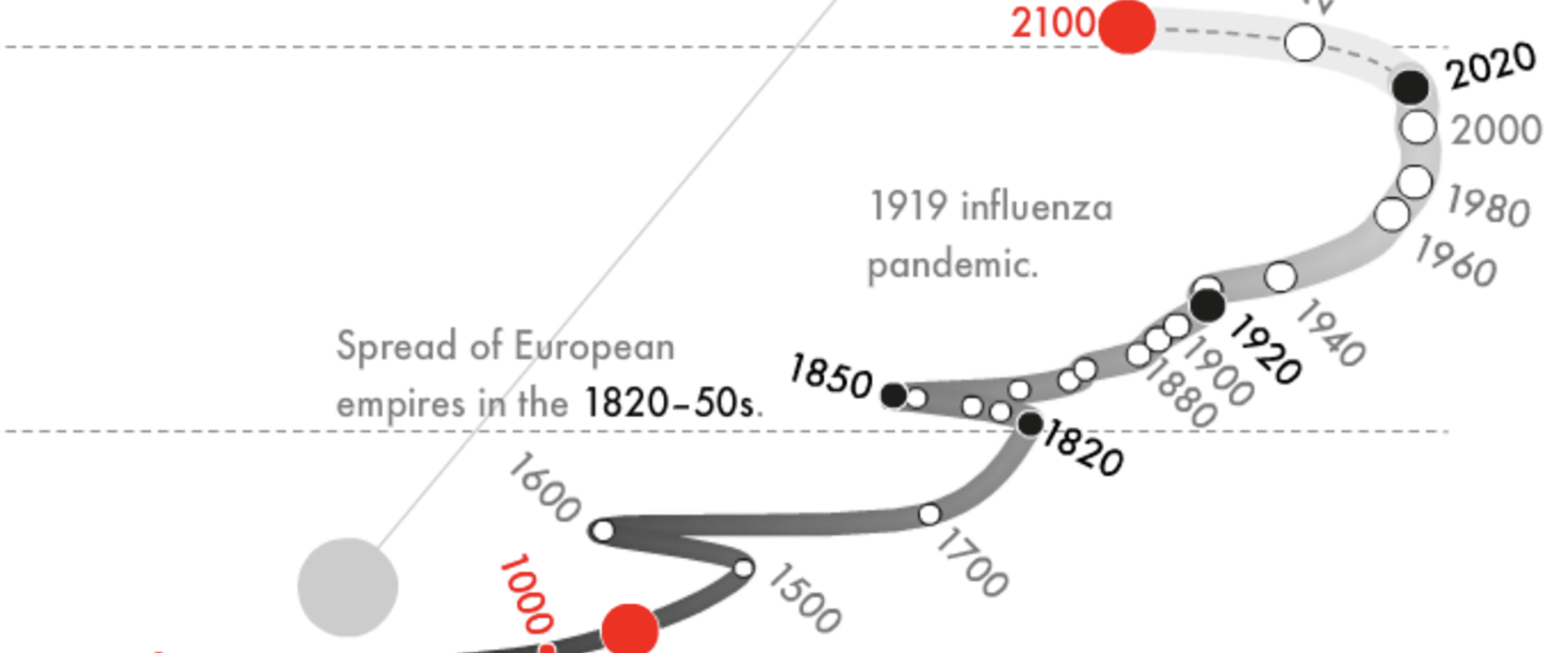
For some time this pandemic will focus almost all of our attention. It is a tragedy that will play out differently in different parts of the world; the poor world will suffer more than the rich one. We will see it as a potential turning point, a portent, a sign that we should have cared more and prepared better. However, human progress was slowing before this pandemic began, and our world will continue to slow down for some time to come – long after the pandemic has ended. I mean slowing down in almost every way that matters. And, because the slowdown was itself slow, we had hardly noticed it. In fact, many people thought that we were still accelerating.
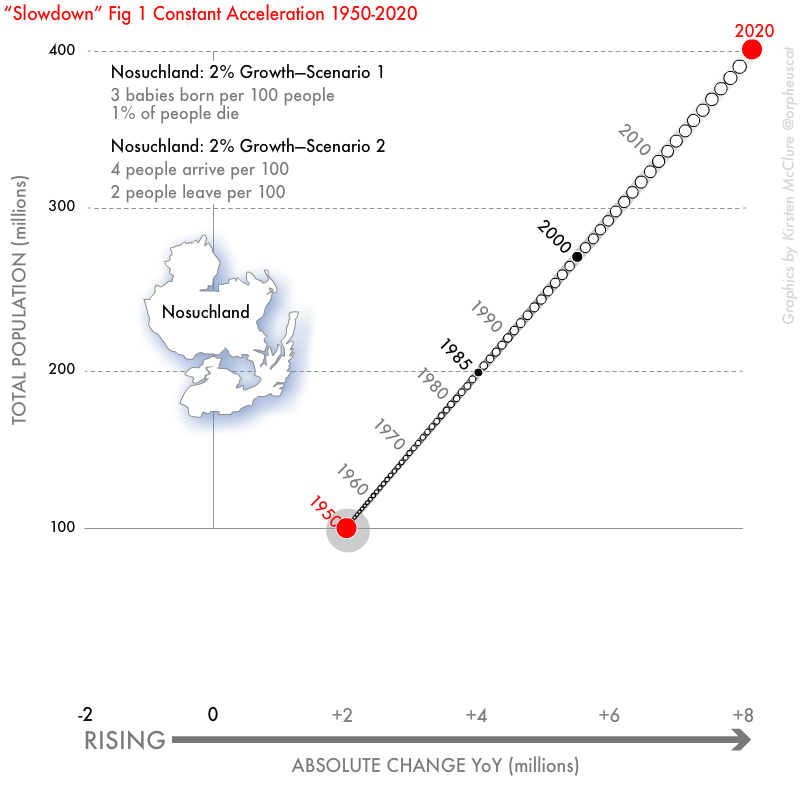
What acceleration looks like, drawn as a phase portrait (Figure 1 from the book ‘Slowdown’).
…
We do not yet know what effect the current pandemic will have on worldwide demographics. But it is actually slightly more likely to increase future populations than decrease them. If the actions of governments, or at least of most governments, make people feel more insecure, economically and socially, then younger people may in the near future have more children than they would have had; and the pandemic will, counterintuitively, very slightly increase the total future population.
…
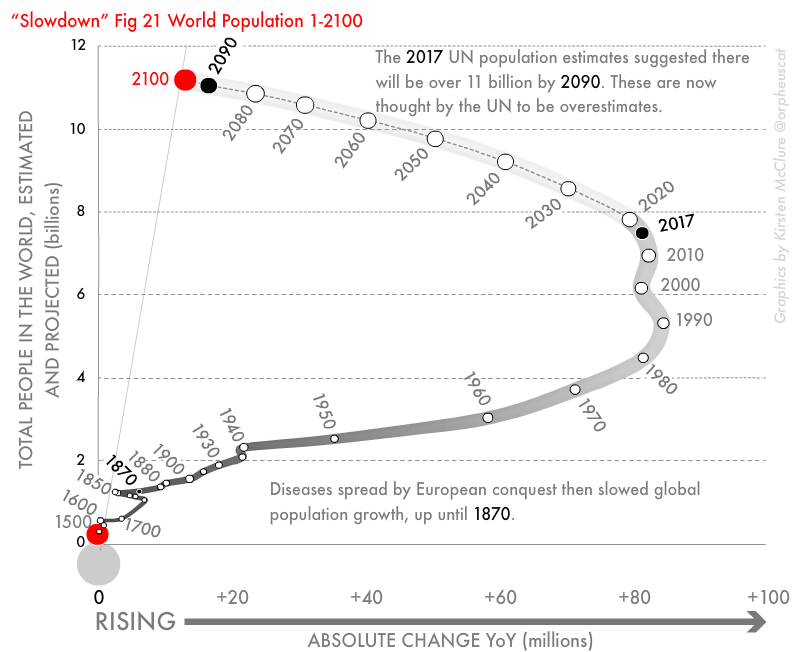
World Population change and projection to 2100 (Figure 21 of the book ‘Slowdown’)
Everything other than that which is vital is being put on hold. The key workers are no longer the billionaires, the bankers, the brokers, the city people, the business people, the estate agents, the landlords. Instead the key workers – those necessary for us to be able to function as a society – are those who were among the most under-appreciated, worst paid, and most overworked: nurses, teachers, rubbish collectors, hospital cleaners, delivery people, railway workers, and carers.
Schools will open to look after key workers’ children so they can do their work, but not for the children of footballers, actors, supermodels, peers and other aristocrats, some of whom will be spending longer with their offspring than they have ever spent before. School classes will not be very large at all.
…For several years I have been studying the slowdown that was already happening to our economy and that was set to deepen, asking how the young in particular might deal with the outcome.
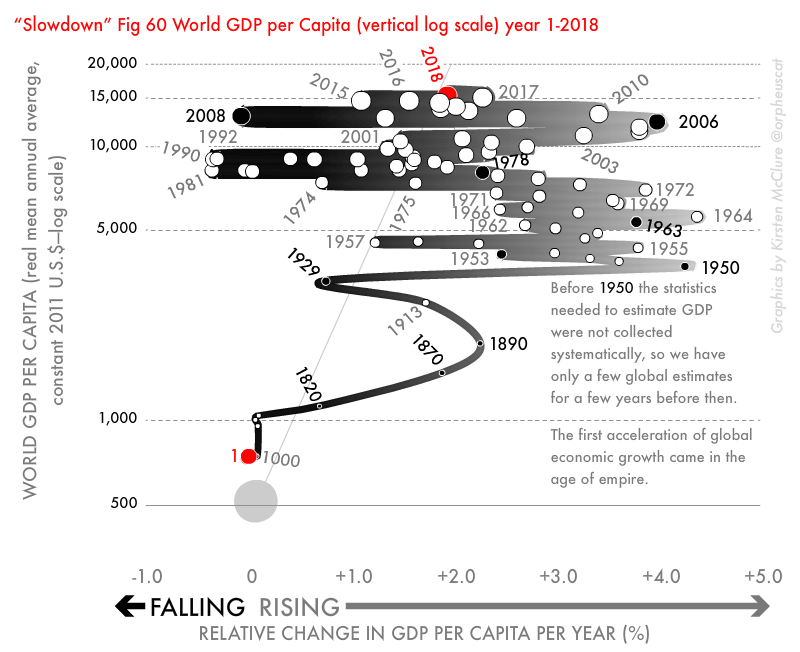
The slowdown in the rise of GDP growth worldwide 1950-2018 (Figure 60 of the book ‘Slowdown’).
…We have a choice to make and we do not have very long to make it. Until now some among us have seen hunger as the whip to get the lazy to work; homelessness as a useful threat for the young, the fate that awaits them if they do not take whatever work they can get. But suddenly, there is so much less work to do.
So much that was frivolous has, for a time, ended. When it is food and shelter that matter most, paying rent so that your landlord can afford a cruise holiday suddenly seems ridiculous. For months to come we will be living with the reduced consumption of goods and services and living a simpler life focused on wellbeing. Who needs new clothes now?
As we eventually emerge from this we should aim not for continued extreme abstinence but something where the entry bar is set quite low, something that’s more realistic and achievable for a greater number of people – a little less of everything on a “forego for good” basis. This is because we are not suddenly going to return to normal.
So, at the very least, in future plan for at least one less foreign holiday a year (if you ever had such holidays), hang on to possessions for an extra year or until they don’t work, eat out less and donate the money you save to a progressive cause, repair and re-use, boycott Black Friday, have contributory birthdays and Christmases where you bring food and drink, but don’t buy tat for your friends and family any more.
There is so much more that we can imagine doing differently now – now that we have been reminded of what matters most. Each “foregoing” could be celebrated on social media as openly or anonymously as people wish.
There are times when everything changes. Right now we are feeling the slamming on of the brakes on the train. For a while almost everything that we have become used to stops.
Read the two articles these brief excerpts are taken from, which were published in The Guardian and Independent newspapers, March 31st 2020.
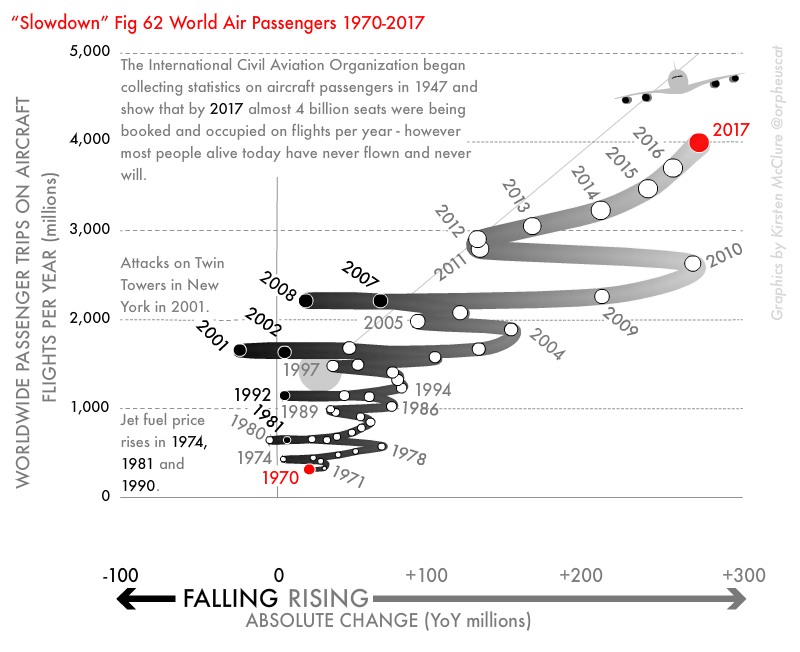
The annual rise in air flights taken by passengers worldwide 1970-2017 (Figure 62 from the book ‘Slowdown’)